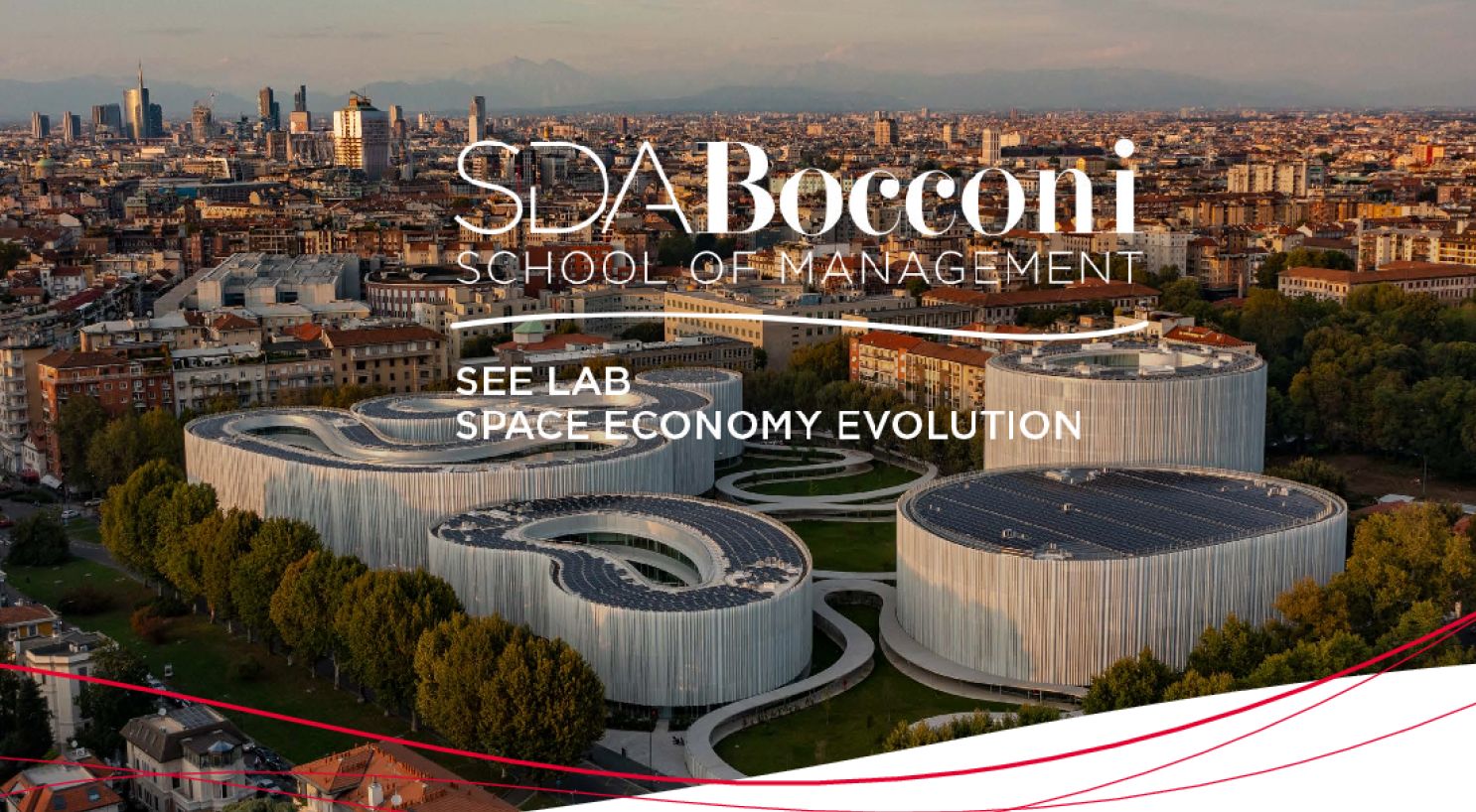Event at Bocconi to explore the role of spatial technologies in sustainable urban transformation
The Space Services for Smart and Circular Cities project aims to revolutionise the way cities are managed and developed, focusing on improving efficiency, optimising infrastructure, fostering collaboration and encouraging innovative business models. This ambitious project aims to improve citizens’ quality of life and protect the environment with a view to sustainability.
According to the European Space Agency, the market for smart city services is set to grow by 57 per cent between 2020 and 2025. This growth is fuelled by the adoption of advanced technologies and the implementation of smart solutions that make cities more liveable, efficient and environmentally friendly. However, the path to the full development of smart cities is not without obstacles. Limited public awareness, broadband accessibility issues, difficulties in integrating data sources and fragmented ecosystems represent significant challenges.
Despite these difficulties, the smart city market is flourishing in some regions, such as China, where there are over 500 pilot projects underway. This success is partly due to citizens’ willingness to share their data, a crucial element in the development of smart, integrated solutions.
In this rapidly evolving context, space technologies, and in particular satellite services, can play a central role in fostering innovative and sustainable solutions. The capabilities of satellite constellations are crucial for various aspects of urban planning and environmental management. Spatial data, for example, are extremely valuable for cities wishing to implement effective measures to mitigate pollution, improve public health and create cleaner urban environments.
The Space Services for Smart and Circular Cities project aims to create an integrated ecosystem involving satellite operators and providers of satellite imagery data, such as companies, SMEs and start-ups. This ecosystem will be equipped with data processing capabilities and integration with ground-based systems, including drones, sensors and gateways. Furthermore, the project envisages collaboration with potential users and companies in the Milan area, promoting an inclusive and collaborative approach.
The project’s presentation event will be held on 4 June at Bocconi University in Milan, Via Sarfatti 10. The introduction will be given by Simonetta Di Pippo, Professor of Practice of Space Economy and Director of Bocconi’s SEE Lab. The moderation will be entrusted to Clelia Iacomino, researcher at the SEE Lab of SDA Bocconi.
The following will participate as speakers
- Marta Laurienzo, Senior Humanitarian Specialist, former UNHRD network coordinator and co-founder of UNHRD
- Salvatore Torrisi, Professor of Strategic Management at the Bicocca University of Milan and scientific coordinator of the MUSA project
- Giovanni Sylos Labini, CEO of Planetek Italia
- Roya Ayazi, Secretary General of NEREUS (Network of European Regions Using Space Technologies)
- Laura Bajardelli, member of the Steering Board of Fondazione Cariplo and of the Scientific Committee of the Milan Metropolitan Observatory
- Simonetta Di Pippo, Professor of Practice of Space Economy and Director of the SEE Lab at SDA Bocconi
To attend the event, you must register via this link. Those who prefer to follow the event online can connect to this link.





